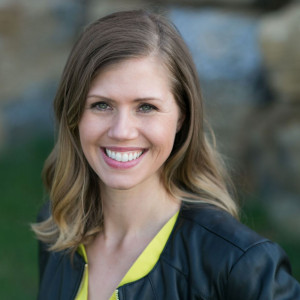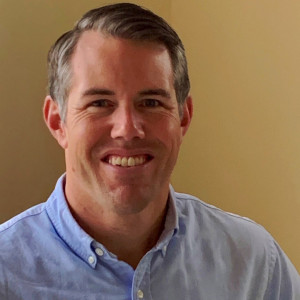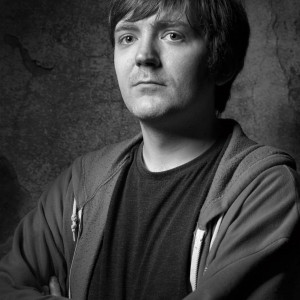How did you get started with remote work?
Interview with Laura, a communications specialist and travel writer by night
I've always had a side hustle as a freelance writer, so I've always worked remotely part-time for various publications. But two years ago, I landed a great full-time gig as a communications specialist with a WordPress website design and development agency called WebDevStudios.
So by day, I work remotely with a team of talented people. By night, I continue working from home writing articles and blog posts.
Laura Coronado discusses her method for juggling her career as a communications specialist by day and her side hustle as a freelance travel writer by night.
Read full interview from Interview with Laura, a communications specialist and travel writer by night.
Interview with Kirsten and Jay-Allen, remote team coaches & collaboration experts
We started working remotely when a company we were with had employees located in different countries.
We really wanted to figure out how to build relationships and have effective remote meetings with each of these spaces, so we researched some guidelines on how distributed teams worked.
Over time we developed a set of principles to guide us when thinking about remote work and linked those to practices. The company then decided to have two remote work days a week and saw the benefits of remote work, especially in relation to work-life balance. We now both work for a fully remote company.
Remote team coaches, Kirsten and Jay-Allen, offer three pieces of advice for new remote workers and reveal the one question every remote job seeker should prepare to answer.
Read full interview from Interview with Kirsten and Jay-Allen, remote team coaches & collaboration experts.
Interview with Vaishali, a content marketer and a productivity tool expert
I started working at a multinational company right after I got my engineering degree. The job was bliss with lots of learning and a good pay-scale. After I got married, I continued working at my job. Eventually, I got promoted and also received an opportunity to go to the U. S. to work for a very high-profile client.
Everything was going fine. Then we (I and my husband) decided to leap into parenthood. Moreover, that's when I decided to leave the job which I loved so much.
I was happy and content because our world was complete with the arrival of our daughter, but the habit of working was still around. So I started freelancing by building websites and offering consulting services for local businesses.
This went on for a few years until I was fed up of the low returns and the struggle to get new local clients.
I did a few certifications and also earned a distance MBA degree. Meanwhile, I was applying for remote jobs. I kept trying my luck for over a year and a half, and one day I received a reply from my current employer, Time Doctor.
After some discussions and verification, I received the confirmation. That's when I actually started working remotely full time.
Vaishali persevered until she found the right remote work job for her lifestyle—check out how she uses productivity tools and time management strategies to stay productive.
Read full interview from Interview with Vaishali, a content marketer and a productivity tool expert.
Company Interview with Tammy, CEO of Workplaceless, and a remote work leader
Workplaceless was founded as a 100% remote company, and the primary reasons are two-fold:
As the leader in remote work training, it's critical for us to model best practices in remote work for our clients. Our distributed team members have empathy for challenges that remote workers and teams face every day.
We leverage our own operating structure as a virtual testing ground to ensure our trainings are effective for us as well as our clients.
Like many small businesses in small cities, suburban or rural areas, the talent pool in my immediate area is skilled, but also limited in number. When I started to grow beyond myself as a sole-proprietor, I knew from prior remote experience that I could access the greatest talent pool to meet the wide range of needs my business had in a startup stage.
With Workplaceless, Tammy helps companies start off on the "right remote foot." Hear how her 100% remote team stays in sync, and how she keeps her employees engaged
Read full interview from Company Interview with Tammy, CEO of Workplaceless, and a remote work leader.
Interview with Tyler, a director of customer success models how to start a remote work career
In early 2019, I had been studying for an educational leadership master's degree. I intended on becoming an assistant principal or a technology coordinator with a school district, but I kept running into roadblocks.
My spouse met someone who was working remotely as a Salesforce administrator, and that sparked my journey from being a technology-oriented educator to becoming an education-oriented technologist. Eventually, I was hired as a customer success manager at Hubstaff.
From networking to land a remote work gig, to building out an exceptional remote work tool stack, Tyler has quickly figured out how to thrive in remote work. See his tips for starting strong.
Read full interview from Interview with Tyler, a director of customer success models how to start a remote work career.
Interview with Dane, a freelance writer and author with 7 published books
I had quite an unusual start with remote work. I used to work in social media marketing and so I always knew that I could work remotely, but I didn’t get much of a chance to do it when I was working for somebody else.
I realized after a while that social media marketing isn’t for me, and in fact I only got into it because it involved a certain amount of writing. So when I decided that I wanted to go freelance, it was only logical to look for writing work.
The first ever client that I took on actually came about through Twitter. A chap called Matt Goolding who runs an agency called KYO Digital was looking for someone who could write content about the publishing industry, and I was pretty much the perfect fit. I responded to his tweet, we hopped on a phone call and he ended up becoming my first client.
From there, I moved on to signing up to freelance sites like PeoplePerHour and Upwork, both of which I still use. They take a cut out of your earnings, but as long as you factor that into your hourly rate then it isn’t too much of a problem.
And at the same time, I’ve been building my reputation in general through the work that I do and so now I tend to get a decent amount of work through referrals or from former clients.
Dane is a freelance writer and author who works remotely, and balances client work with writing his own books.
Read full interview from Interview with Dane, a freelance writer and author with 7 published books.
Interview with Melissa, a co-founder and remote work champion
I have worked in the advertising industry for about 15 years. About 10 of those years were spent in NYC where the job market can get pretty competitive, and the expectation is always that your butt was in the seat and the "face time" was what enabled you to move up the ladder.
I'm embarrassed to say how many nights I actually slept at the office. I thought it was the only way...
The more experience I gained, the more I realized that I needed solid chunks of thinking time without distractions. It took me a while to gain the confidence to set precedents with when I was willing to be available to my team and my boss.
Initially, I worked one set day from home, and that was enough to get me hooked on the benefits of flexible working environments. I was more productive, more energized and overall, felt like I had a life outside of work for the first time in... well maybe ever.
So when I moved to Atlanta about four years ago, I made some intentional choices that allowed me more flexibility while still focusing on my career goals:
- One, I negotiated part-time status at the agency I was at.
- Two, I picked up other sources of freelance income that allowed me to be more autonomous like teaching, mentoring, and workshop facilitation.
And, most recently, after meeting my amazing business partner, MaryEllen Stockton, we decided to go in all the way and not only work completely remote but focus on the topic itself in our services. We wanted to help other women like us achieve the type of flexibility they only dream of — without the guilt.
Melissa started Work Well Wherever to help individuals & companies embrace remote work—see how she balances entrepreneurship, parenthood, & self-care.
Read full interview from Interview with Melissa, a co-founder and remote work champion.
Interview with Marian, a nomadic social media manager and day trader
I started my remote lifestyle four and a half years ago, and it was by chance. I was looking for a job opportunity, and I found out about stock trading.
I invested $50 on stock trading, and I had a mentor that worked with me every time I traded.
I enjoyed, and loved the idea of working and making money at home.
I was a day-trader for over five years. I still sometimes trade, but nowadays, I am focusing on building my own digital marketing skills.
On June 2019, I discovered the idea of the digital nomad, and I joined a Facebook group for entrepreneurs. Within the group, they focus on hiring each other to help further their businesses.
I discovered that I can help other business owners manage their time, as well as schedule and manage their social media business accounts as a virtual assistant.
My first client was an American entrepreneur, and I learned a lot through the experience, like working with Google Sheets and Docs.
Day trading & virtual assisting has allowed Marian to see the world—in this interview, she lays out her routine and priorities for those thinking of traveling while working.
Read full interview from Interview with Marian, a nomadic social media manager and day trader.
Interview with Patric, a UX designer and usability engineer that works from home
After being a consultant and living in hotels and airports I took the leap to quit my job and double down on freelancing.
I am a UX Designer / Usability-Engineer and specialized in mobile and web applications. I already had a few clients during my studies but it took a while to get high-quality clients after quitting my full-time job.
At the beginning, I took on programming jobs as well as project management jobs. Only after a year or so I could make choices about the kind of work I took on.
Patric works on his own projects while also consulting for medium sized software companies, learn how he works remotely.
Read full interview from Interview with Patric, a UX designer and usability engineer that works from home.
Interview with Vivek, an entrepreneur building a virtual office for remote teams
I never really expected to work remotely, to be honest. Out of college, I founded a company called StacksWare after graduating from college and sold it after operating the business for two years. The acquiring company was based in Santa Clara at the time, and we were living in San Francisco.
The daily commute was brutal, taking one and a half hours to commute one way during peak traffic. I viscerally remember my lowest point during that period. I was sitting in my car in bumper-to-bumper traffic on the 101 on a Monday morning, calculating the opportunity cost of all the lost time in traffic and dreading the return journey at 6 PM.
I asked if I could work remotely and never looked back.
The long San Francisco commute sent Vivek into remote work—hear about his three strategies for eliminating distractions & his must-have tools.
Read full interview from Interview with Vivek, an entrepreneur building a virtual office for remote teams.









